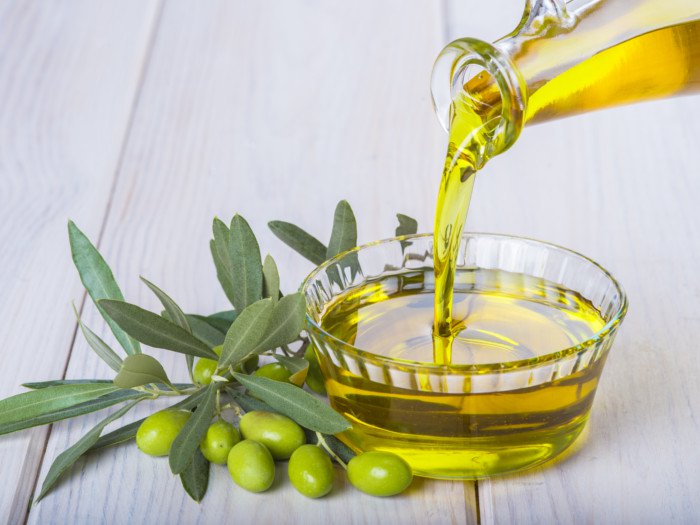Many people ask the question – does olive oil go bad? – but it can be difficult to know when it’s time to throw away your bottle and get a fresh one.
Does Olive Oil Go Bad?
As with any natural product, olive oil does have a shelf life, and over time, exposure to oxygen will cause oxidation and rancidity in olive oil. This is first seen in a decline of the oil’s quality, and while it could take years before the oil is truly unusable, it is always best to use fresh and fully potent olive oil. [1]
Before you decide whether to toss or keep your old oil, it is important to know how to tell if your olive oil has gone bad. Most importantly, good olive oil should smell strongly of olives, whereas rancid or old olive oil will smell very differently, closer to crayons or other greasy items. It will also taste strange, leaving an unpleasant residue in the mouth.

Extra virgin olive oil is made by crushing olives and extracting the juice. Photo Credit: Shutterstock
In most cases, when properly sealed and stored in a dark, cool place (not the refrigerator), olive oil can keep for two years or so before the early signs of rancidity begin to set in. As mentioned earlier, olive oil may start to lose its quality after two years, but generally, it still functions after that as a cooking oil. That being said, olive oil can be found at relatively reasonable prices, so buying a new bottle should always be considered after a few years. [2]
How to Keep Extra Virgin Olive Oil Fresh?
If you have a bottle of extra virgin olive oil that you want to keep as fresh as possible, the best thing to do is not open it until you are truly ready to start using it. In other words, keeping 4 different olive oils open at the same time is a foolish choice. The three main factors to consider are the light, temperature, and airflow; excessive exposure to sunlight, heat or air (oxygen) will increase the rate of oxidation and rancidity. Choosing olive oils with tinted containers is a great way to slow the process of rancidity. [3]
Keeping your oil cool is also important, but it isn’t essential to store it in the refrigerator. Now, it is important to remember that even in sealed bottles in appropriate environments, oil isn’t like wine; excessively old oils will naturally be less potent and may have an unpleasant flavor.
